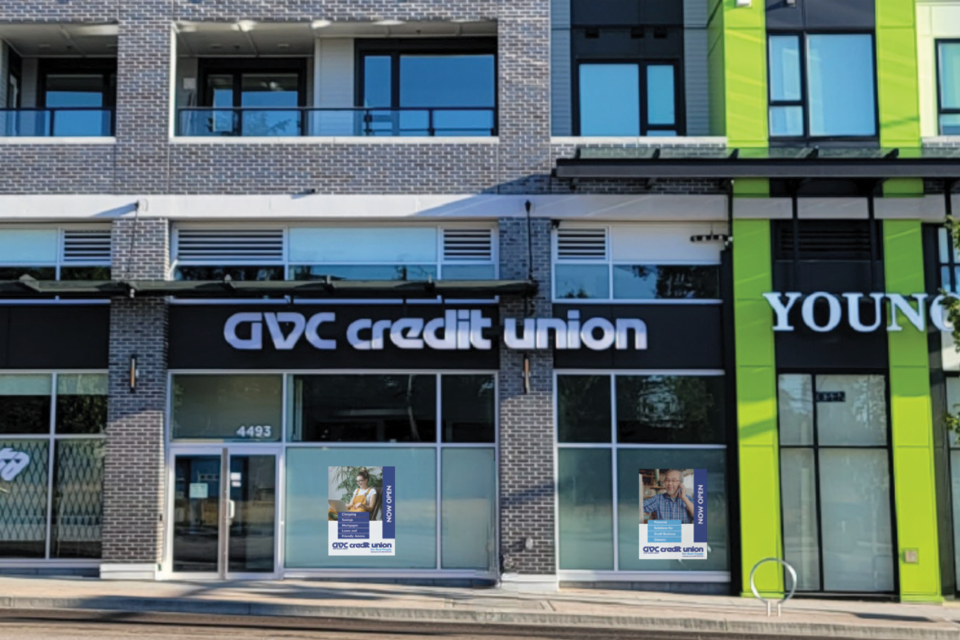Have you had trouble being approved for a mortgage, line of credit, or even a credit card?
It could be due to your poor credit score. A credit score is a numerical rating from 300 to 800 that indicates your credit-worthiness, which is whether or not financial institutions consider you a good candidate to receive a loan.
Past financial behaviour, such as overdue bills, maxed out credit cards, and late payments can affect a bank’s decision to grant you credit.
However, Greater Vancouver Community (GVC) Credit Union believes in helping its members access second chances and specializes in helping families, working people, the self-employed, small business owners, and new Canadians looking to re-establish their credit or to purchase a home of their own.
“We’re here to build people back up,” retail credit manager Julian Beckett says.
GVC Credit Union, one of the oldest credit unions in British Columbia, believes in seeing people for more than a number in a financial formula. The credit union understands that everyone’s financial stability is challenged at times. GVC Credit Union works with its members to help re-establish their credit.
“We really coach people and sit down with our members so they learn how to get a good credit score,” Beckett says.
The credit union works to create a warm and inviting atmosphere where members can access the financial support they need. For those in Burnaby, the new Burnaby Heights Branch is now open on Hastings Street on the corner of Willingdon Avenue, with free underground member parking available.
Looking to improve your credit score? GVC Credit Union offers these six tips:
1. Review your credit report regularly
Your credit score is affected by a number of factors, including amount of credit, late payments, recent credit checks and more. Regularly checking your credit score ensures you are on track, it also is a good way to detect fraud early. There are a number of free online tools where you can track your credit score, and it’s recommended you do so every three to six months.
2. Pay Your Bills on Time
Regularly scheduled payments back on a credit card and/or loan shows creditors that you are worthy of taking credit and paying it back on time and can increase your credit score by 100 points in just 12 months.
3. Catch up on overdue bills
To secure good credit, you need to have a history of using your credit and paying it back on a consistent and regular scheduled basis. Ensure that you are making the minimum payments by their due date.
4. Ensure your debts are only in your name
Debts held in joint names, such as credit cards and loans of credit, don’t affect your credit score much. To help build good credit, ensure your debts are only in your name and that you are making consistent payments.
5. Consider a secured credit card
If you don’t qualify for a credit card on your own, consider working with GVC Credit Union for a secured credit card. This means the credit union will hold an amount of money related to your credit card limit in trust and provide a guarantee to the credit card company that you can pay your debts. Once you’ve successfully demonstrated that you can make regular payments, you could qualify for a regular credit card.
6. Don’t max out your credit
The amount of credit you have available to you is taken into consideration when calculating your credit score. This is called credit utilization. To help improve your credit score, a rule of thumb is that you should only use roughly 30% of credit available to you.
To start banking with a financial institution made for real people, visit www.gvccu.com.



